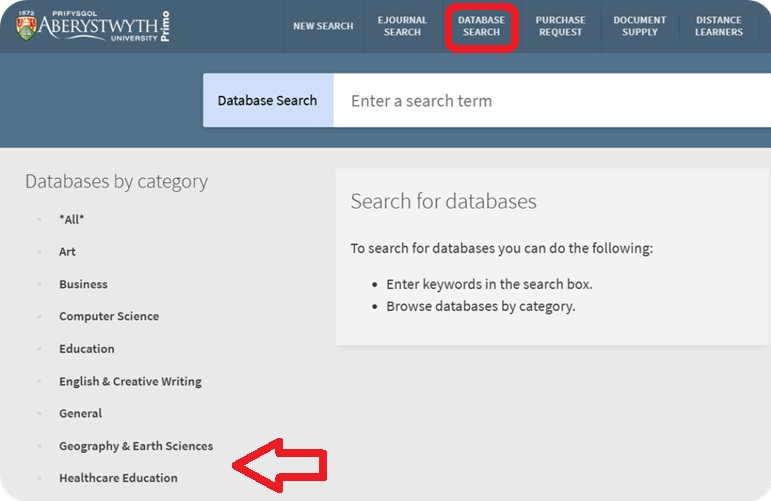Navigating the world of healthcare can feel incredibly overwhelming. The feeling of being time-poor while juggling personal commitments, lectures, and clinical placements can be intense. So, when it comes to research for assignments or understanding complex conditions, it can be hard to know where to start.
Rather than time spent on endless online searches that can lead you down rabbit holes of questionable websites and outdated information, your library invests in premium healthcare databases like CINAHL, MEDLINE, British Nursing Database (and many more!) for a reason – they are goldmines of credible, peer-reviewed research specifically for healthcare.
Our Database Search page is fully integrated within our main library search tool and can be found at the top of Primo, so no need to remember any separate URLs.
The Database Search is divided up into different subjects so you can browse resources applicable to your course. Alternatively, you can search by key terms and draw results from the whole of the collection.
Befriend these databases for:
- Reliable, up-to-date evidence: These databases curate information from reputable journals.
- Targeted Information: Use specific keywords and filters to pinpoint articles directly related to your topic, whether it’s wound care, mental health nursing, or diabetes management.
- Evidence-Based Practice at Your Fingertips: These databases help provide the foundation for understanding the “why” behind the practice, helping deliver the best possible services based on solid research.
- Academic Success: Using credible sources from these databases will strengthen your arguments, demonstrate critical thinking, and ultimately lead to better grades.
- Expanded knowledge: Broaden your understanding of healthcare topics for career preparedness.
Don’t know where to start?
- Sign in to Primo – your library catalogue.
- Search in the ‘Database Search’ for your database – follow any off-campus notes if needed.
- For further information and support, see your LibGuide or contact your librarian.
Happy researching!






